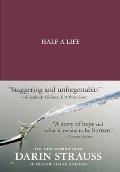
I was on a plane to Los Angeles. This happened yesterday.
The man next to me (chunky-frame glasses; devil goatee) said: "What do you do?"
I told him I was a writer.
"No," he said, his voice a mix of clarifying and dickhead. "I mean for a living."
"That's my job."
He went into a kind of Dire Straits monologue about that not being working. I told him it can be hard sometimes, and is always a lot of work.
"How can it be hard?" he gave me a look that meant phooey. "You're making stuff up."
Here I should mention that he's right. It doesn't feel like an actual job: it's a blessing to be able to make a living at this, and I mean that in the most sincere way possible. And I've had menial jobs, and professional writer isn't one of them.
So why did I bristle? I don't think it was all pride. For all the things I love about it — and I don't think I'd rather be a rock star, a retiree, the President of the United States — it's okay to admit that, in David Mamet's terms, it's a tough racket. Constant rejection. No security. Career paths being dictated by freelance reviewers. And of course, the terror of the writing desk, of the blank page. Why is it so hard for our non-writer friends to understand this — that it's a job? My parents and sister want me to come up to visit on weekdays. I say I'm working. "Oh, come on," they say.
I blame movies. In the otherwise wonderful (Stoppard-doctored) Shakespeare in Love, the Bard writes all of Romeo and Juliet, in iambic, rhyming couplets, in one go — because inspiration struck him. But that's not how it works. And here's a lesson for young writers starting out. (And I've decided these blog posts are going to be advice for young writers.)
Norman Mailer wrote that the professional writer can't afford to wait for inspiration to strike. You've got to work at it every day. You've got to be a jobber. I think I wrote in the last one: As my friend David Lipsky (Although of Course You End Up Becoming Yourself) says: you're trying for something extraordinary. You have to put in an extraordinary effort. (That doesn't mean that you can't be optimistic. The wonderful Amy Spencer, in Meeting Your Half-Orange, talks about the importance of optimism. [Visit Amy Spencer's blog here.])
"What do you do?" I asked the airplane guy. He said, "I work for a brewery. I've always thought I want to write a book about it…"